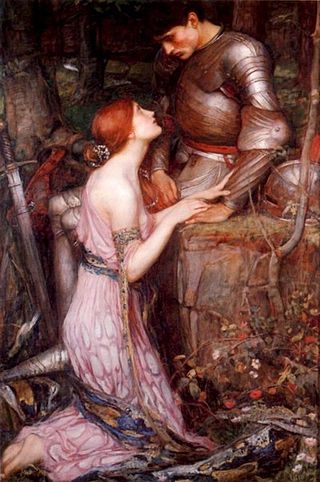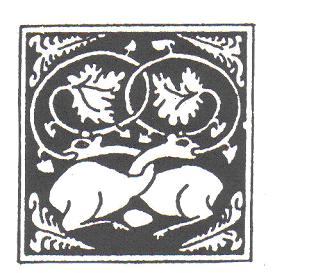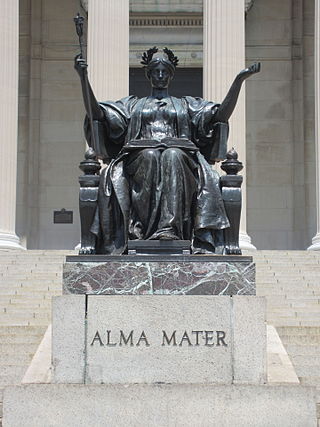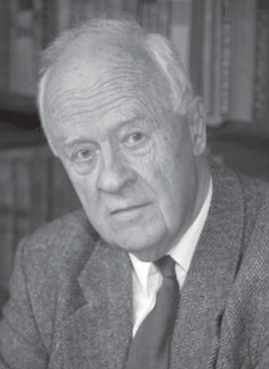
Feudalism, also known as the feudal system, was a combination of legal, economic, military, cultural, and political customs that flourished in medieval Europe between the 9th and 15th centuries. Broadly defined, it was a way of structuring society around relationships derived from the holding of land in exchange for service or labour.

A peasant is a pre-industrial agricultural laborer or a farmer with limited land-ownership, especially one living in the Middle Ages under feudalism and paying rent, tax, fees, or services to a landlord. In Europe, three classes of peasants existed: non-free slaves, semi-free serfs, and free tenants. Peasants might hold title to land outright, or by any of several forms of land tenure, among them socage, quit-rent, leasehold, and copyhold.
Islamic studies refers to the academic study of Islam, and generally to academic multidisciplinary "studies" programs—programs similar to others that focus on the history, texts and theologies of other religious traditions, such as Eastern Christian studies or Jewish studies but also fields such as —where scholars from diverse disciplines participate and exchange ideas pertaining to the particular field of study.

Medieval literature is a broad subject, encompassing essentially all written works available in Europe and beyond during the Middle Ages. The literature of this time was composed of religious writings as well as secular works. Just as in modern literature, it is a complex and rich field of study, from the utterly sacred to the exuberantly profane, touching all points in-between. Works of literature are often grouped by place of origin, language, and genre.

The Monumenta Germaniae Historica (MGH) is a comprehensive series of carefully edited and published primary sources, both chronicle and archival, for the study of parts of Northwestern, Central and Southern European history from the end of the Roman Empire to 1500. Despite the name, the series covers important sources for the history of many countries besides Germany, since the Society for the Publication of Sources on Germanic Affairs of the Middle Ages has included documents from many other areas subjected to the influence of Germanic tribes or rulers. The editor from 1826 until 1874 was Georg Heinrich Pertz (1795–1876); in 1875 he was succeeded by Georg Waitz (1813–1886).

The University of Bamberg in Bamberg, Germany, specializes in the humanities, cultural studies, social sciences, economics, and applied computer science.
Medieval studies is the academic interdisciplinary study of the Middle Ages. A historian who studies medieval studies is called a medievalist.

Post-medieval archaeology is a term used in Europe to describe the study of the material past over the last 500 years. The field is also referred to as historical archaeology, a term originating in North America, and common in countries impacted by European colonialism. It is closely related to industrial archaeology and contemporary archaeology. Many scholars have found a connection between post-medieval and contemporary archaeology particularly in how scholars can view their archaeological study and apply in their own present contexts. It is also crucial by studying both post-medieval and contemporary archaeology that it can benefit the future of archaeology, particularly as scholars can apply the studies in more recent periods as time progresses.
Boydell & Brewer is an academic press based in Martlesham, Suffolk, England, that specializes in publishing historical and critical works. In addition to British and general history, the company publishes three series devoted to studies, editions, and translations of material related to the Arthurian legend. There are also series that publish studies in medieval German and French literature, Spanish theatre, early English texts, musicology, and other subjects. Depending on the subject, its books are assigned to one of several imprints in Woodbridge, Cambridge (UK), or Rochester, New York, location of its principal North American office. Imprints include Boydell & Brewer, D.S. Brewer, Camden House, the Hispanic series Tamesis Books, the University of Rochester Press, James Currey, and York Medieval Press.
Franz Rosenthal was the Louis M. Rabinowitz Professor of Semitic Languages at Yale University from 1956 to 1967 and Sterling Professor Emeritus of Arabic, scholar of Arabic literature and Islam at Yale from 1967 to 1985.

Medievalism is a system of belief and practice inspired by the Middle Ages of Europe, or by devotion to elements of that period, which have been expressed in areas such as architecture, literature, music, art, philosophy, scholarship, and various vehicles of popular culture. Since the 17th century, a variety of movements have used the medieval period as a model or inspiration for creative activity, including Romanticism, the Gothic revival, the pre-Raphaelite and arts and crafts movements, and neo-medievalism . Historians have attempted to conceptualize the history of non-European countries in terms of medievalisms, but the approach has been controversial among scholars of Latin America, Africa, and Asia.

The Medieval Chronicle Society is an international and interdisciplinary organization founded to facilitate the work of scholars interested in medieval annals and chronicles, or more generally medieval historiography. It was founded in 1999 and in February 2011 had 380 members.
Caroline Walker Bynum, FBA is a Medieval scholar from the United States. She is a University Professor emerita at Columbia University and Professor emerita of Western Medieval History at the Institute for Advanced Study in Princeton, New Jersey. She was the first woman to be appointed University Professor at Columbia. She is former Dean of Columbia's School of General Studies, served as president of the American Historical Association in 1996, and President of the Medieval Academy of America in 1997–1998.
The following outline is provided as an overview of and topical guide to the Middle Ages:
Brian Oliver Murdoch is a British philologist who is Emeritus Professor of German at the University of Stirling. He specializes in the study of early Germanic and Celtic literature, on which he has authored and edited several influential works.
The following outline is provided as an overview of and topical guide to the Renaissance:

Rudolf Simek is an Austrian philologist and religious studies scholar who is Professor and Chair of Ancient German and Nordic Studies at the University of Bonn. Simek specializes in Germanic studies, and is the author of several notable works on Germanic religion and mythology, Germanic peoples, Vikings, Old Norse literature, and the culture of Medieval Europe.

A university is an institution of higher education and research which awards academic degrees in several academic disciplines. University is derived from the Latin phrase universitas magistrorum et scholarium, which roughly means "community of teachers and scholars". Universities typically offer both undergraduate and postgraduate programs.
Kenneth Meyer Setton was an American historian and an expert on the history of medieval Europe, particularly the Crusades.

Dennis Howard Green was an English philologist who was Schröder Professor of German at the University of Cambridge. He specialized in Germanic philology, particularly the study of Medieval German literature, Germanic languages and Germanic antiquity. Green was considered one of the world's leading authorities in these subjects, on which he was the author of numerous influential works.









